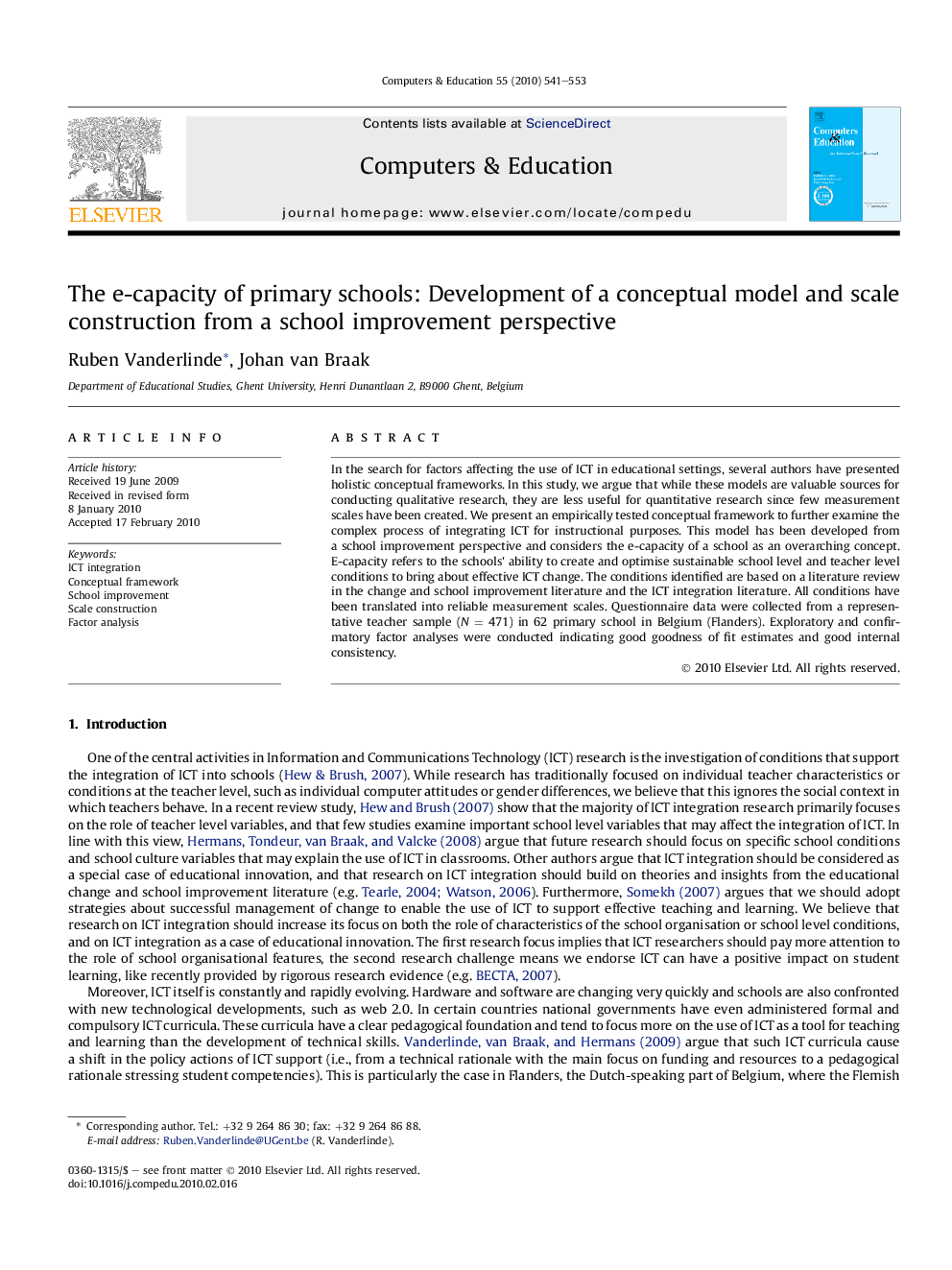| Article ID | Journal | Published Year | Pages | File Type |
|---|---|---|---|---|
| 349125 | Computers & Education | 2010 | 13 Pages |
In the search for factors affecting the use of ICT in educational settings, several authors have presented holistic conceptual frameworks. In this study, we argue that while these models are valuable sources for conducting qualitative research, they are less useful for quantitative research since few measurement scales have been created. We present an empirically tested conceptual framework to further examine the complex process of integrating ICT for instructional purposes. This model has been developed from a school improvement perspective and considers the e-capacity of a school as an overarching concept. E-capacity refers to the schools' ability to create and optimise sustainable school level and teacher level conditions to bring about effective ICT change. The conditions identified are based on a literature review in the change and school improvement literature and the ICT integration literature. All conditions have been translated into reliable measurement scales. Questionnaire data were collected from a representative teacher sample (N = 471) in 62 primary school in Belgium (Flanders). Exploratory and confirmatory factor analyses were conducted indicating good goodness of fit estimates and good internal consistency.
